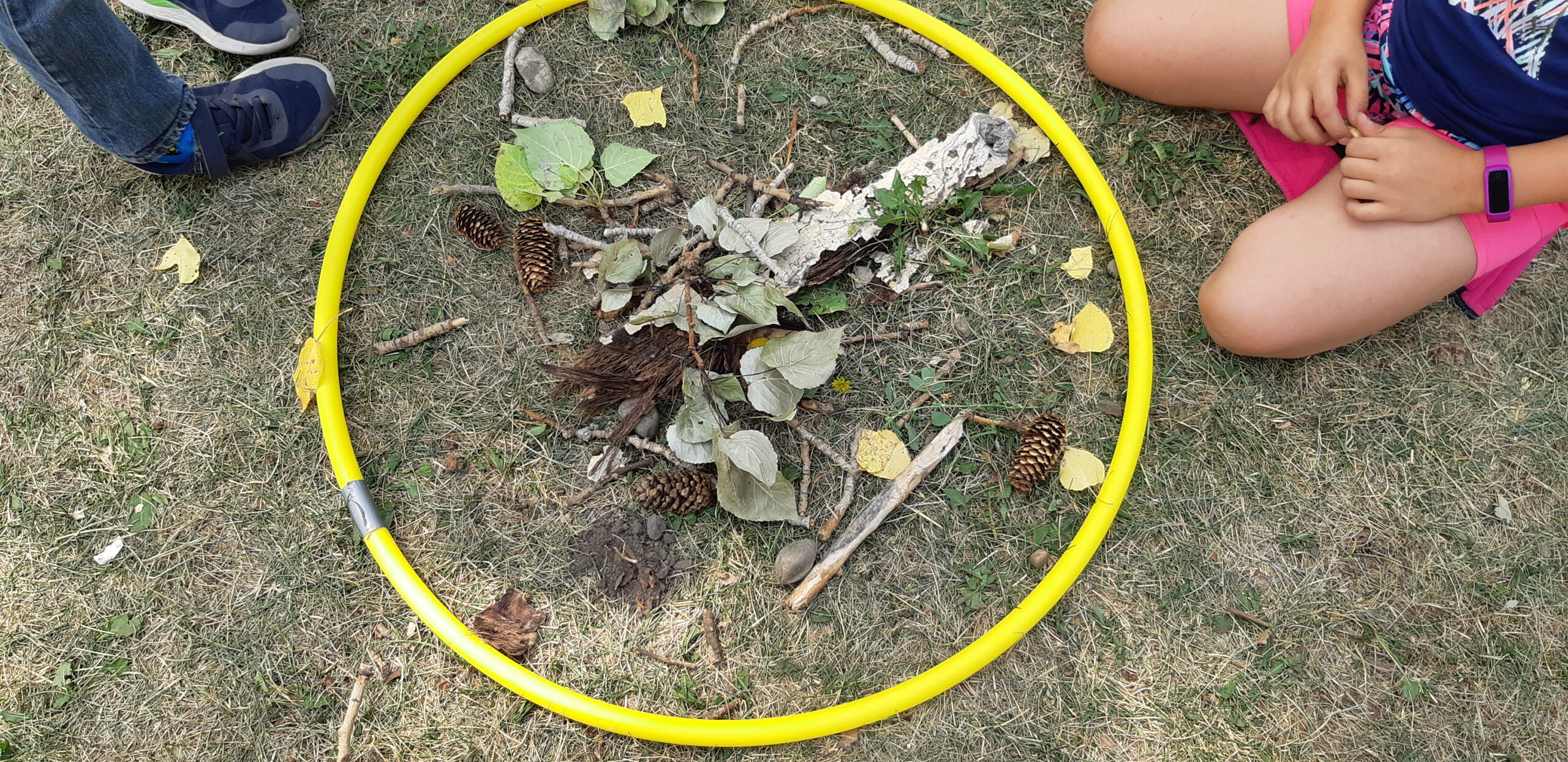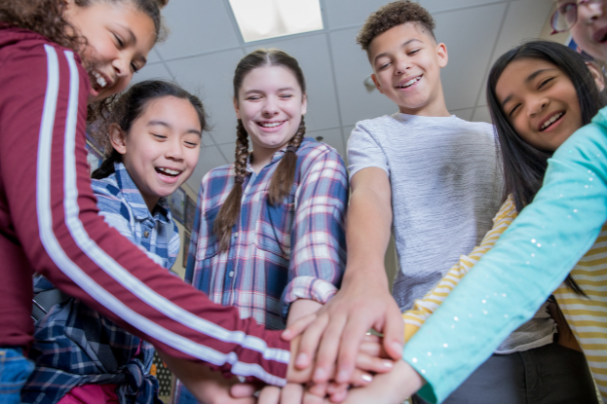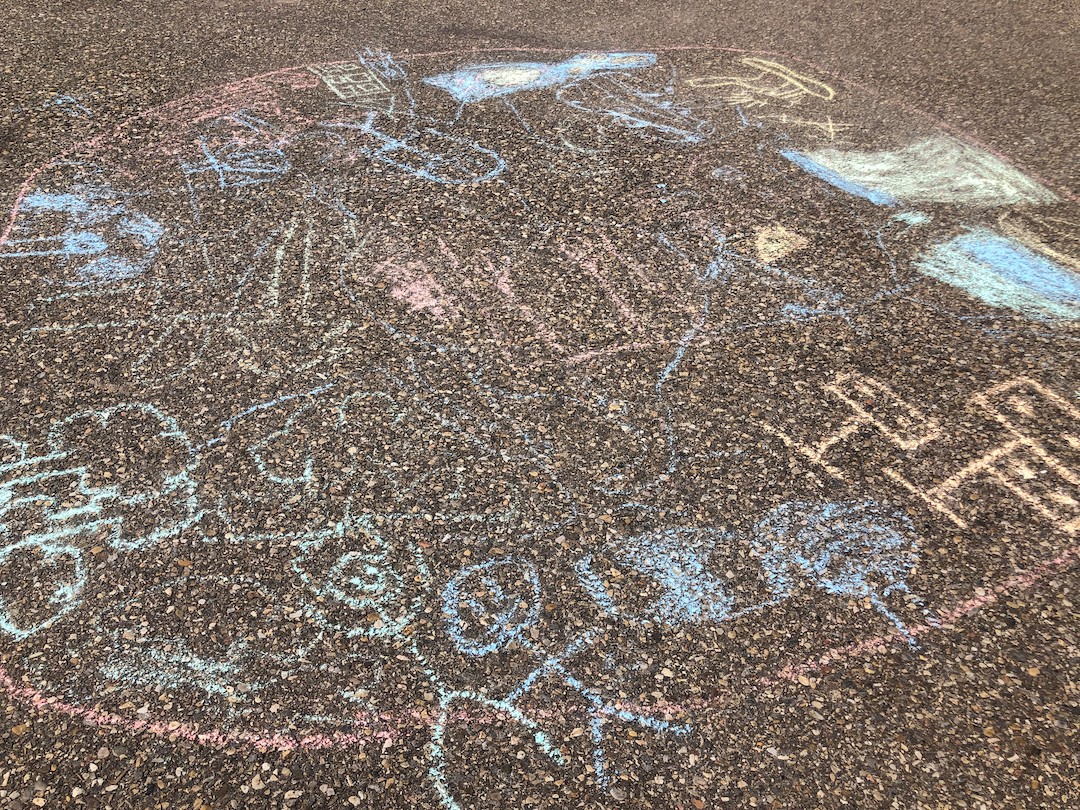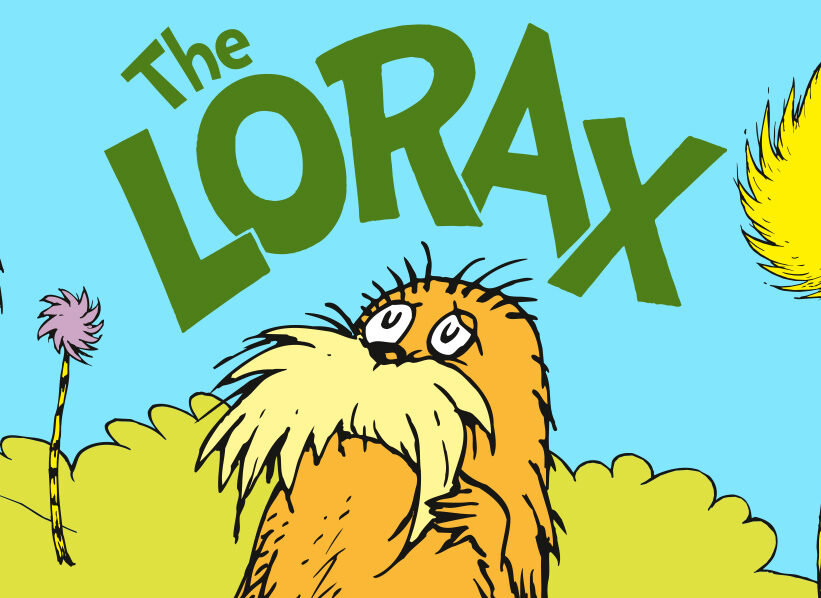A relay/movement game!
PURPOSE
In relay-race fashion, teams of participants must collect as many diverse ‘nature experiences’ (cones and/or popsicle sticks) as possible within a limited time period. Through this activity, participants will first experience feelings of injustice and think about inequalities that exist in the world.
GRADE LEVELS
K-12
TIME NEEDED
25 minutes

Curriculum LINKS
Core Competencies
Critical thinking
Problem solving
Creativity and innovation
Communication
Collaboration
Cultural and global citizenship
Personal growth and well-being
Critical thinking
Problem solving
Creativity and innovation
Communication
Collaboration
Cultural and global citizenship
Personal growth and well-being
MATERIALS NEEDED
Pine or spruce cones – lots
Coloured Popsicle sticks – 100+
2 (or more) small containers to act as team, ‘nature experience’ collection bins & home base
Instructions
- Ask the participants to stand in a circle. Set boundaries for the game space by having leaders/volunteers stand in outer limits. Let the participants know that together we make up a community (could be Calgary, Alberta, or a specific community). Share experiences available locally in nature while exhibiting either nature objects you’ve collected from the surroundings or showcasing the cones/popsicle sticks you’ve brought:
"In our community, there are a lot of different ways to enjoy nature! We could go birdwatching (object #1), we could go to the park (object #2)."
- Continue giving a couple of examples or ask the participants to share some of their examples, while moving around the outside perimeter of the group, picking up nature objects (rocks, fallen leaves) to highlight these experiences – if in an urban setting, this is the time to spread widely your supply of cones/popsicle sticks:
"And getting outside in nature is SO good for you! It helps you spend time with your family and friends, it makes you feel better and healthier. These opportunities to get outside and connect with nature are there, but we just need to get to them first. So today we're going to race to try and collect as many ‘nature experience opportunities’ as possible!"
- Divide the circle in half and label them group 1 and group 2 (can add more groups if you would like). Referring back to the nature object/cone/popsicle stick ‘nature experiences’ shared, explain that each team – one team member at a time (tagging in and out) - will have 5 minutes to go out and collect as many ‘nature experiences’ as possible. Initiate the first round of play, 3-2-1-GO! At the end of 5 minutes, regroup and count up the actual number of ‘nature experiences’ attained.
- For next round, (1) propose ‘making it a little more interesting’ by suggesting each team take-on a unique means of movement for ‘experience’ collecting. Survey the group for as many ideas as possible – hopping, skipping, crab-walking, crawling, walking backwards, summersaulting, etc, and then have each team vote on the movement their group will action. OR, (2) as poker-faced as possible, announce that that group 1 is allowed to run and walk, and that Group 2 is only allowed to move in a restricted motion as determined by you (crab-walking, on their knees, etc.). Resetting the timer for 5 minutes, initiate Round 2 play, 3-2-1-Go!
5. With ears and eyes open, make mental note of participant responses, complaint, or work-arounds to different rules for different teams. Students may complain that the situation is unfair! Acknowledge the inequity and allow for them to either instigate their own work-arounds or revolt. If those participants who aren't allowed to run/walk, start to run/walk, then allow them to. Do not say anything to it.
6. After time is up and ‘nature experiences’ gathered are again counted, ask the groups to reflect on how they did. Who got the most objects? Which group did better? Why did group 1 do better than group 2? How did it feel being in group 2? Who got the most nature opportunities? If you felt disadvantaged, what did you do about it? Anything?
"In our communities, not everyone had the same opportunities as everyone else to be able to enjoy nature. Some people had it much harder to collect nature items – was that fair? No."
Discussion
- Get out your collections of sample items. “But sadly, we might see this in real life as well. Some people might not have access to a car, so they can't drive to all the parks (drop an object). For others, it might be expensive to buy the right shoes, the right clothes, or the right equipment for activities (drop another object). For others, they might not feel safe or welcome outside (drop a couple more objects until you're just left with one object). Is there a lot of opportunities to get outside for those people? NO!”
- Ask the students – did it have to be like this? Group 2, who told you that you were not allowed to walk/run or use the same movement to gain/gather nature experiences? The participants will likely say that you did. Ask them:
- "Did you HAVE to listen to me? (Participants might be confused by this question, encourage the confusion.) Sometimes it's confusing – but getting outside in nature and enjoying the outdoors is ONE OF YOUR RIGHTS. And there's a word for this actually – ECOJUSTICE. Ecojustice is the idea that when it comes to nature, everyone should have a fair piece of it. EVERYONE is allowed to enjoy these things. It is your right to play, to explore, to be healthy, to have clean water, to have healthy food, and to feel safe. It is your right to belong in nature. You belong in nature. We all belong in nature.
- "But hey! Group 1 – did you notice that something unfair was going on? Did you do anything to help? What could you have done to help?" Collect ideas from the group on how they could have supported one another. Some examples include: they could have shared their nature items with those who were struggling to get them, they could have refused to collect items until everyone was allowed to move in the same way, they could have asked a teacher for help collecting items, they could have spoken out loud and said "HEY! This is unfair!"
- "Your voices and your actions are so powerful! What if (choose a random participant who was in group 2) stood up and said, "Hey this is unfair!" (Get the student to yell it out!). And started running instead of crawling. What would happen then? Well, everyone else would be like, if they are allowed to, then I'm going to do it as well, and then start to follow! On the count of 3 - I want everyone to shout – I belong in nature!"
- "Did you HAVE to listen to me? (Participants might be confused by this question, encourage the confusion.) Sometimes it's confusing – but getting outside in nature and enjoying the outdoors is ONE OF YOUR RIGHTS. And there's a word for this actually – ECOJUSTICE. Ecojustice is the idea that when it comes to nature, everyone should have a fair piece of it. EVERYONE is allowed to enjoy these things. It is your right to play, to explore, to be healthy, to have clean water, to have healthy food, and to feel safe. It is your right to belong in nature. You belong in nature. We all belong in nature.
- If time, play a third round where both teams are encouraged to collect ‘nature experiences’ however they’d like; enabling individual talents/preferences to maximize nature access for all.
More Bring Nature Home for Teachers
Bring Nature Home is our online database of tried-and-tested CPAWS Southern Alberta activities! Here are some ways that you can bring nature home (or to the classroom) today!

Climate Change and Anxiety
Discover how climate is changing habitat for different animals such as the grizzly bear.…

Build a (Inclusive) Park
Break out the side walk chalk and get creative to build the park of your dreams! A park that welcomes…

How Does Habitat Impact Wildlife?
Through a fun reading, students consider the effects of habitat disturbance on wildlife, and are given the opportunity to think…
